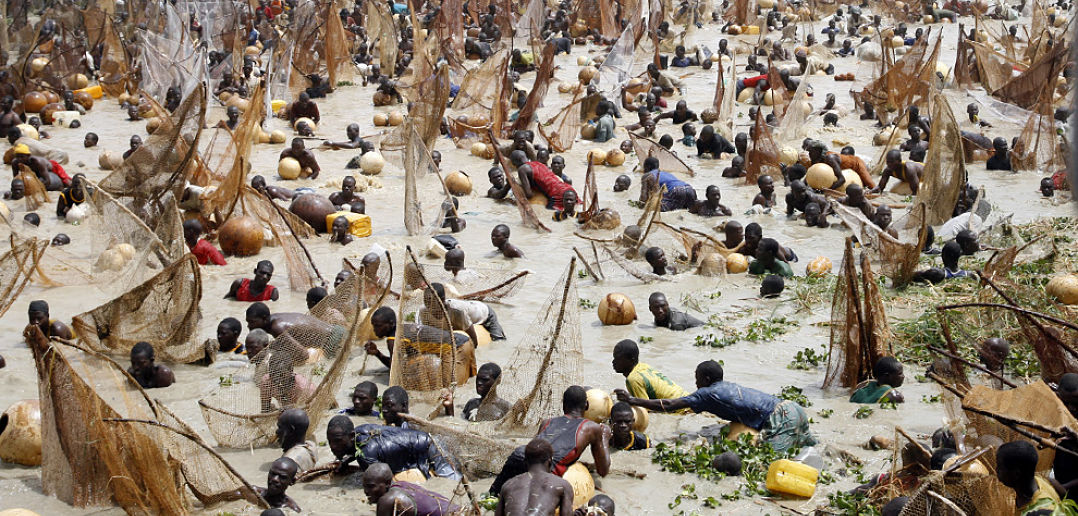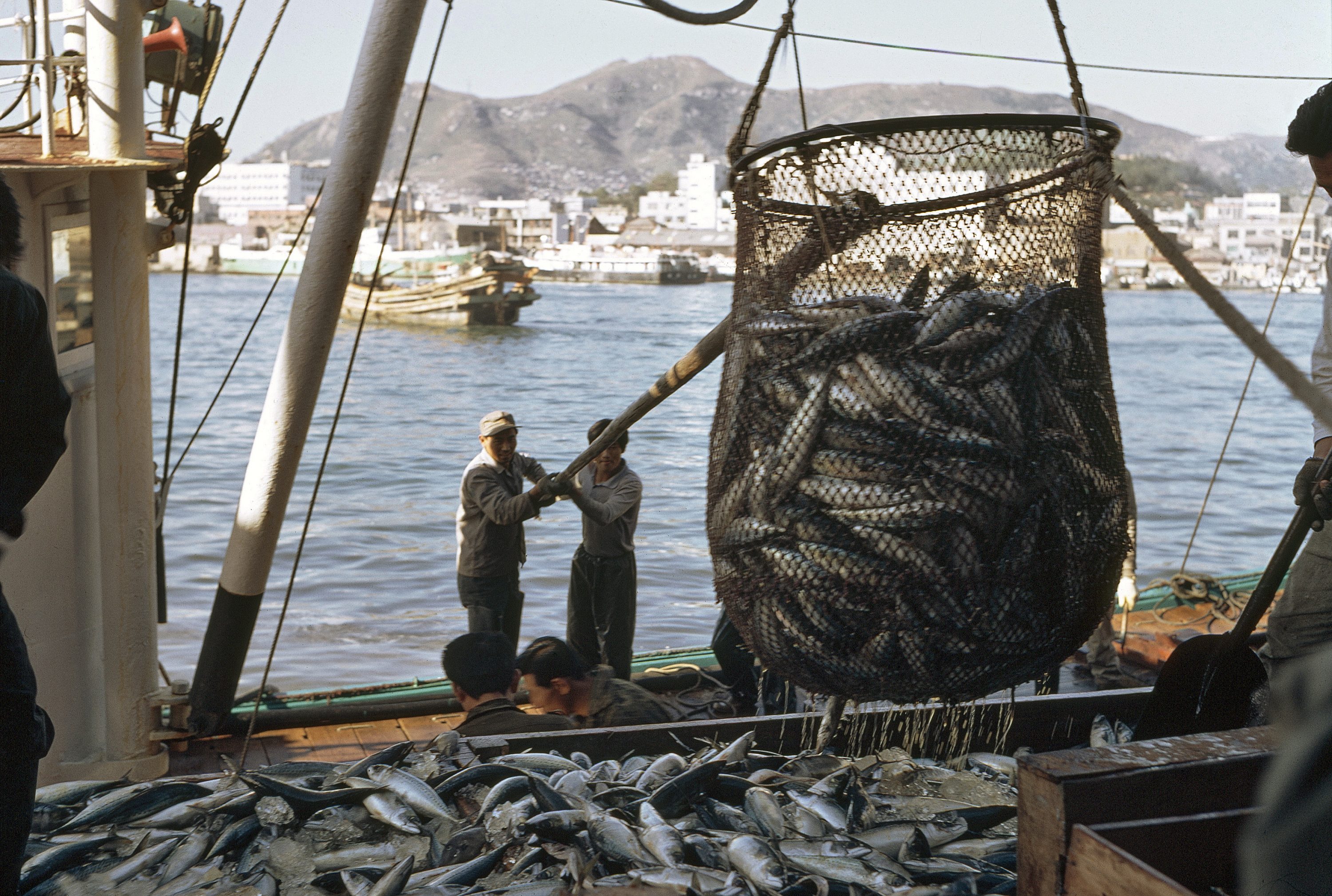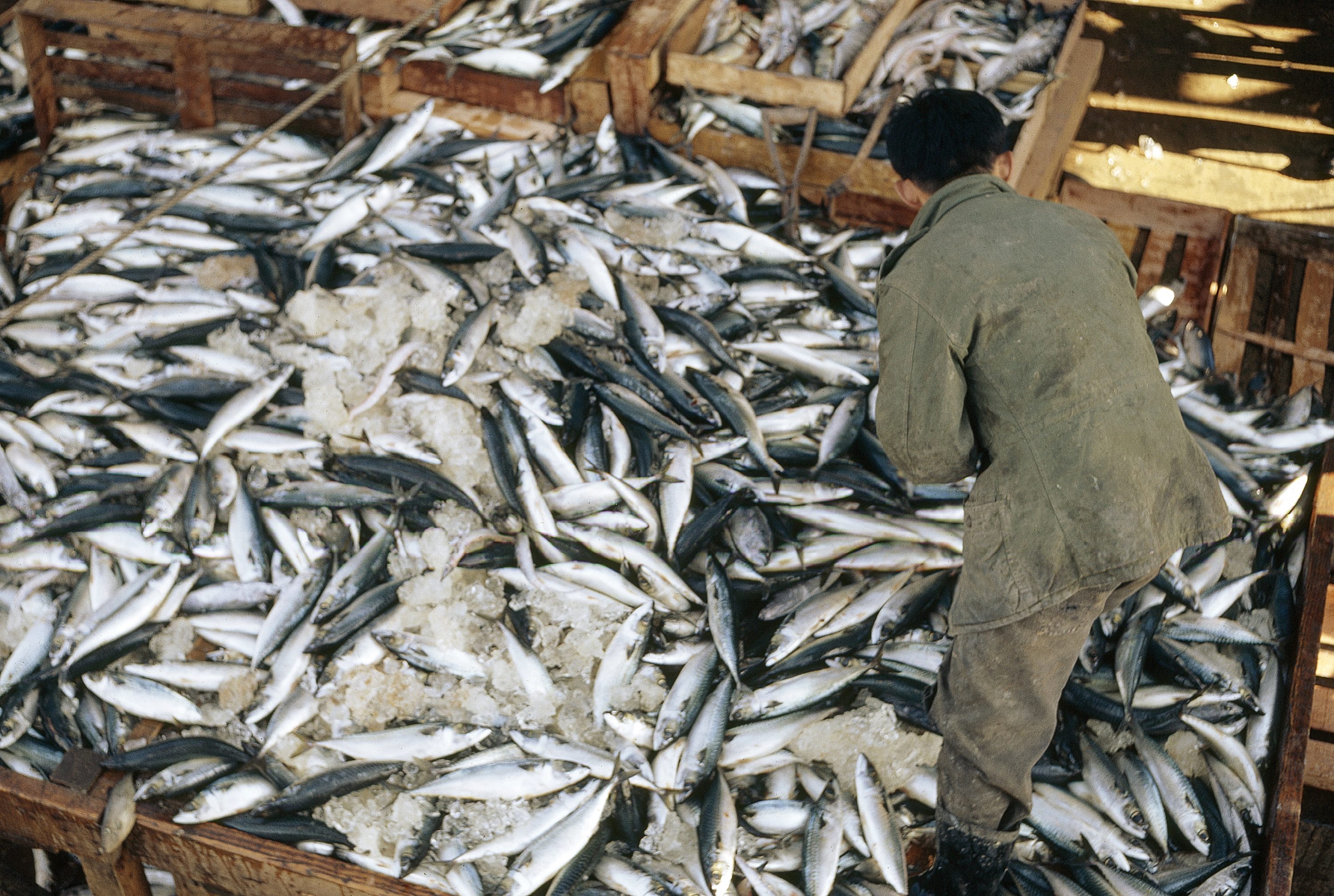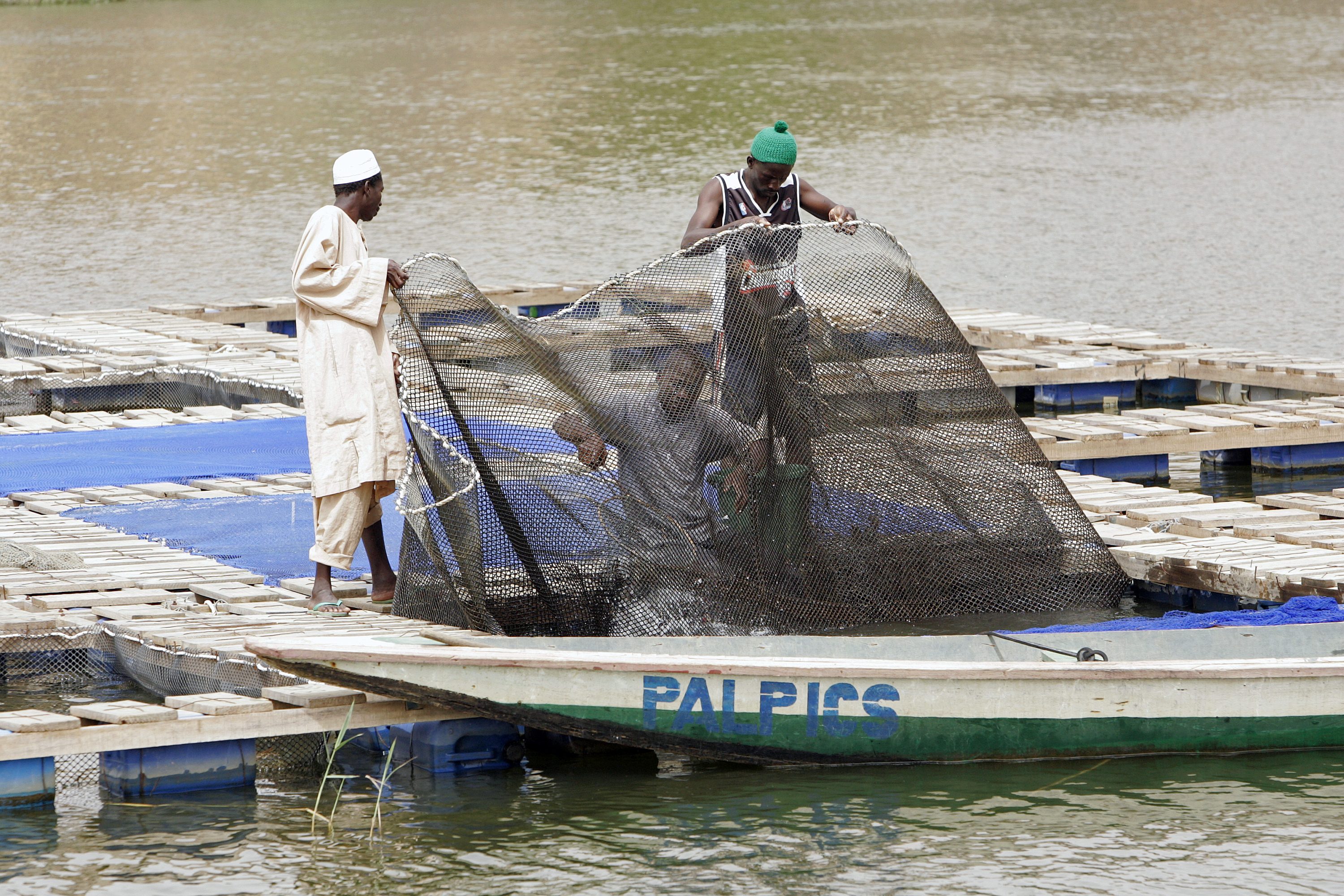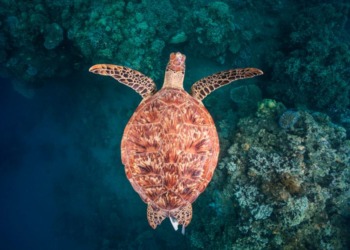The Port State Measures Agreement against Illegally-Caught Fish
Editor’s Note: This piece is co-authored by Annick Vanhoutte and Blaise Kuemlangan, Lawyer and Chief, Development Law Service, FAO
Despite the many efforts to tackle illegal, unreported and unregulated fishing (IUU-fishing) in areas under national jurisdiction and on the high seas, the scourge persists. Each year, IUU fishing is responsible for annual catches of up to 26 million tons, with a value of up to 23 billion USD which negatively affects the resources and hurts many people including those who play by the rules.
There is a general agreement between regulators, fishers and other stakeholders that a multi-pronged approach to tackling IUU fishing is required including through international agreements.
The Port State Measures Agreement (Agreement on Port State Measures to Prevent Deter and Eliminate Illegal, Unreported and Unregulated Fishing) is the first legally binding international instrument designed to prevent entry into markets and trade of illegally caught fish. The Agreement entered into force on 5 June 2016. It harnesses the potency of the application of Port State measures to exclude the introduction of catches from IUU fishing into markets and trade.
Why a Port State Measures Agreement Matters
Port State measures are a relatively simple and economic means of hitting at the profitability of IUU fishing. So far 42 countries have joined the Agreement which describes steps for Port States to follow and measures to apply to prevent the offloading of IUU fishing products in their ports. Many States, including those that have not joined the Agreement have legislated on and applied Port State measures. The Agreement adds momentum to the use of Port State measures by establishing a minimum of such measures to be applied and reinforces the need to cooperate and act in a cohesive way to fight IUU fishing.
In international law, foreign vessels do not have automatic right to enter a port of another State (the Port State); they can only enter when authorized by the Port State or, exceptionally, when they are in distress or in force majeure situation. But even in these exceptional situations, the Port State retains the right to recognize the situation as one of distress or force majeure. This derives from the fact that ports fall within internal waters and thus territorial jurisdiction of the Port State.
 In the Photo: Unloading mackerel at fish market Photo Credit: UN Photo/M Guthrie
In the Photo: Unloading mackerel at fish market Photo Credit: UN Photo/M Guthrie
The Link Between Illegal Fishing and Fisheries Resources Conservation
The 1995 UN Fish Stocks Agreement, (The Agreement for the Implementation of the Provisions of the United Nations Convention on the Law of the Sea of 10 December 1982 relating to the Conservation and Management of Straddling Fish Stocks and Highly Migratory Fish Stocks.) in recognizing the potential for Port States to contribute to fisheries conservation and management, emphasizes the sovereignty of States in their ports and provides that parties have the “duty and right” to take non-discriminatory measures to promote the effectiveness of regional and global conservation and management measures.
While the Agreement, does not mention IUU fishing specifically, it does call on Port States to inspect vessels in their ports and prohibit landings and transshipments where it has been established that the catch has been taken in a manner that undermines the effectiveness of conservation and management measures, in accordance with national regulations. A number of Regional Fisheries Management Organisations (RFMOs) have adopted Port State measures in accordance with these provisions.
The non-legally binding International Plan of Action to Prevent, Deter and Eliminate Illegal, Unreported and Unregulated Fishing (IPOA-IUU) adopted in 2001 expands significantly on the 1995 UN Fish Stocks Agreement by providing elements of a step-by-step approach including by requiring fishing vessels to give notice of entry, request authorization to enter and submit to inspections.
Despite its voluntary nature, it paved the way towards the legally-binding Port State Measures Agreement.
The momentum towards such an Agreement was carried through a series of Expert and Technical Consultations within the framework of the Food and Agriculture Organization of the United Nations (FAO) that led to the adoption of the 2005 FAO Model Scheme on Port State Measures. This in turn laid the groundwork and the departure point for the elaboration of a set of binding Port State measures set out in the 2016 Port State Measures Agreement.
The Port States Measures Agreement, like the 1995 UN Fish Stocks Agreement and the 2001 non-legally binding IPOA-IUU, are part of the global response driven by the international community’s “impatience” with the less than satisfactory exercise of control by flag States (the state under whose laws a commercial vessel is registered or licensed) over vessels flying their flag, including on the high seas.
The Port States Measures Agreement sets out minimum measures that the Port State should apply when foreign fishing vessels enter or before they allowed the use its ports for landing fish or other services. The threat of the denial of the use of ports and their services is a key thread that runs throughout the Port State Measures Agreement.
How Port State Measures Work
Denial is possible (and potentially obligatory) at three separate points in time:
- Prior to entry into port;
- Upon entry, and
- After inspection.
Prior to entry, a port can deny entry to a foreign vessel if there is sufficient proof of engagement in IUU fishing based on a minimum level of information that foreign vessels are obliged to give to the Port State when requesting entry. Such information includes flag State, vessel’s owner, relevant fishing authorizations and total catch on board. At this early stage, it is vital that there is timely communication with other states and regional fisheries organizations (RFMOs) in order to verify the information provided by the vessel, or to ask if there are grounds to suspect that a particular vessel has been involved in IUU fishing.
Related article: “OVERFISHING, CLIMATE CHANGE, AND HUNGER”
The Agreement allows the Port State to deny a vessel entry into its port if it has sufficient proof that the vessel has engaged in IUU fishing,
It is possible that while the Port State suspects that a foreign vessel seeking access has engaged in IUU fishing, there will not be sufficient proof. To substantiate or dismiss the suspicion, the Agreement empowers Port States to allow a foreign fishing vessel to enter their ports for the exclusive purpose of inspecting them. If this inspection indicates that, for example,
- The vessel was not authorized to fish as required by the flag State; or
- that the flag State did not confirm within reasonable time that the fish on board was taken in conformity with the conservation and management measures of the RFMO in whose region the vessel was fishing; or
- where the Port State has reasonable grounds to believe that the vessel was “otherwise engaged in IUU fishing or fishing related activities”,
then the Port State must deny the vessel the use of its port for landing, transshipping, packaging and processing of fish previously landed and other services.
The Agreement sets out minimum requirements for inspections. The levels of inspections are not specified but Port States should give priority to inspecting vessels that have previously been denied entry or use of port, or where other parties to the Agreement or RFMOs request inspection, and, particularly if such request is supported by evidence of IUU fishing.
In the Photo: Unloading fish as part of the daily arrival of fishing boats on Lake Victoria near Entebbe. Photo Credit: UN Photo/M Guthrie
Cooperation is Crucial
Cooperation among Port States is a key element in the Agreement. In all instances where the use of port has been denied, the flag State must be immediately informed along with other coastal states, RFMOs and international bodies.
The idea is to disseminate the information as widely and as quickly as possible to enable harmonized actions amongst other Port States against the IUU fishing vessel in real time with a view to prevent the vessel’s catch from easily entering the market, thus reducing the profit of IUU fishing operators.
Port State measures, even if used in combination with other tools, are only going to be effective if there is a high degree of cooperation and standardization between measures imposed at different ports. Lack of harmonization in port controls may lead to “ports of convenience” with IUU fishing vessels simply calling at those ports with the lowest standards of control.
To this end, regional fisheries organizations (RFMOs) can play a key role in ensuring greater harmonization of Port State measures and ensuring that their members apply these measures effectively and consistently. Standardization makes it harder for illegal fisheries to exploit differences in laws of Port States.
The Role of Flag States
The starting point for any further enforcement action lays with the flag States. Under the Agreement, the flag State has an obligation to cooperate with the Port State in inspections of its vessels. The flag State is notified by the Port State of suspected or clear IUU fishing activity of its vessel and must investigate and, where necessary, impose sanctions. Any such action must be reported to Port States and RFMOs.
Even if the Port State Measures Agreement gives primary responsibility to the flag State to take enforcement action against IUU fishing vessels, the Agreement nevertheless provides that nothing prevents the Port State from taking additional “measures in conformity with international law”.
What further measures does international law allow the Port State to take?
The Agreement provides that the Port State can take actions upon request or with the consent of the flag State, which is clearly possible under international law. The difficulty arises where there is no such agreement or consent or when the flag State does not act upon receiving information from the Port State regarding illegal fishing activities by the flag State’s vessel. The Port State Measures Agreement fails to offer clarity on permissible measures in these situations.
 In the Photo: Fisherman in the Darou Khoudoss village of Senegal. Photo Credit: UN Photo/Evan Schneider
In the Photo: Fisherman in the Darou Khoudoss village of Senegal. Photo Credit: UN Photo/Evan Schneider
A Missed Opportunity?
During the preparatory meetings leading to the adoption of the Agreement, there were some deliberations on the possibility for Port States to impose more punitive actions such as detention of foreign fishing vessels; refusal to leave its port pending consultation with the flag State and, forfeiture of illegal catch of a vessel that has operated outside the waters of the Port State. However, there were no conclusive outcomes of such discussions.
Some coastal states have laws that enable them to take action against persons, including their own nationals and vessels flying their flag that have introduced into the coastal states’ jurisdiction fish caught in contravention of laws of another state, and possibly going against the conservation and management measures of certain RFMOs. Examples of such laws include the Lacey Act of the United States of America (US) and the laws of certain countries of the Pacific rim (The Pacific countries that have provisions that prohibit introduction or import of fish that were caught in contravention of laws of another State include: Marshall Islands, Nauru, Papua New Guinea, Solomon Islands, Tonga and Vanuatu.) that have been inspired by the provisions of the Lacy Act of the US.
Some may regret that the opportunity was missed, at the time of negotiating the Port State Measures Agreement, to develop international law empowering explicitly Port States to impose punitive charges along the lines of those set out in Article 218 of the United Nations Convention on the Law of the Sea (UNCLOS) regarding illegal discharges. It is debatable whether discussions to this end would have been successful or would have served only to delay the early adoption of the Port State Measures Agreement which was being negotiated in earnest to fight the scourge of IUU fishing.
It is clear however that there is still room for research into the extra-territorial application of Port State jurisdiction or to identify, through international agreements, the specific types of enforcement action that can be taken by Port States for violations of applicable international rules and standards established through competent international organizations or general diplomatic conferences.
The future of the conservation and sustainable management of ocean resources depend on it.
Recommended reading: “DECLINE OF FISHING IN LAKE TANGANYIKA ‘DUE TO WARMING'”
Authored by:
Annick Vanhoutte & Blaise Kuemlangan

Annick Vanhoutte is currently Senior Legal Officer, General Legal Affairs Service, Legal and Ethics Office of the United Nations Food and Agriculture Organization (FAO), in Rome, Italy. She joined FAO in 1990 as a Legal Officer and became over the years the focal point for fisheries and aquaculture related legal matters in the Development Law Service of the Legal Office (LEGN). After 15 years in the Development Law Service, she became Chief of the Administrative Law Service responsible for advising on HR legal matters organisation-wide, including disciplinary matters, internal appeals, legal HR matters, interpretation of the FAO HR rules and regulations. As Senior Legal Officer she deals with array of legal subject-matters including relationships with host government, with FAO’s Governing and Statutory Bodies, Privileges and Immunities of FAO assets, properties and staff and administrative law matters and many more.
 Mr. Blaise Kuemlangan, a national of Papua New Guinea, is the Chief of the Development Law Service of the Legal Office of the Food and Agriculture Organization of the United Nations (FAO) where he has been working for the last 20 years. Mr. Kuemlangan is an expert in international law specialising in fisheries and aquaculture. Before joining FAO’s Development Law Service, Mr. Kuemlangan practised law in his country from 1988 to 1996 with the Attorney General’s Department. During that period, he represented his country in regional fisheries management fora and in negotiating international fisheries agreements including the Agreement for the Implementation of the Provisions of the United Nations Convention on the Law of the Sea of 10 December 1982 Relating to the Conservation and Management of Straddling Fish Stocks and Highly Migratory Fish Stocks. As head of FAO’s Development Law Service, Mr. Kuemlangan leads a team of development lawyers that provide assistance upon request from countries to develop legal frameworks to implement international instruments in support of food and agriculture and natural resource management. His recent area of work in this connection focuses on legal options and capacity building for developing countries for the implementation of the Agreement on Port State Measures to Prevent, Deter and Eliminate Illegal, Unreported and Unregulated Fishing.
Mr. Blaise Kuemlangan, a national of Papua New Guinea, is the Chief of the Development Law Service of the Legal Office of the Food and Agriculture Organization of the United Nations (FAO) where he has been working for the last 20 years. Mr. Kuemlangan is an expert in international law specialising in fisheries and aquaculture. Before joining FAO’s Development Law Service, Mr. Kuemlangan practised law in his country from 1988 to 1996 with the Attorney General’s Department. During that period, he represented his country in regional fisheries management fora and in negotiating international fisheries agreements including the Agreement for the Implementation of the Provisions of the United Nations Convention on the Law of the Sea of 10 December 1982 Relating to the Conservation and Management of Straddling Fish Stocks and Highly Migratory Fish Stocks. As head of FAO’s Development Law Service, Mr. Kuemlangan leads a team of development lawyers that provide assistance upon request from countries to develop legal frameworks to implement international instruments in support of food and agriculture and natural resource management. His recent area of work in this connection focuses on legal options and capacity building for developing countries for the implementation of the Agreement on Port State Measures to Prevent, Deter and Eliminate Illegal, Unreported and Unregulated Fishing.


